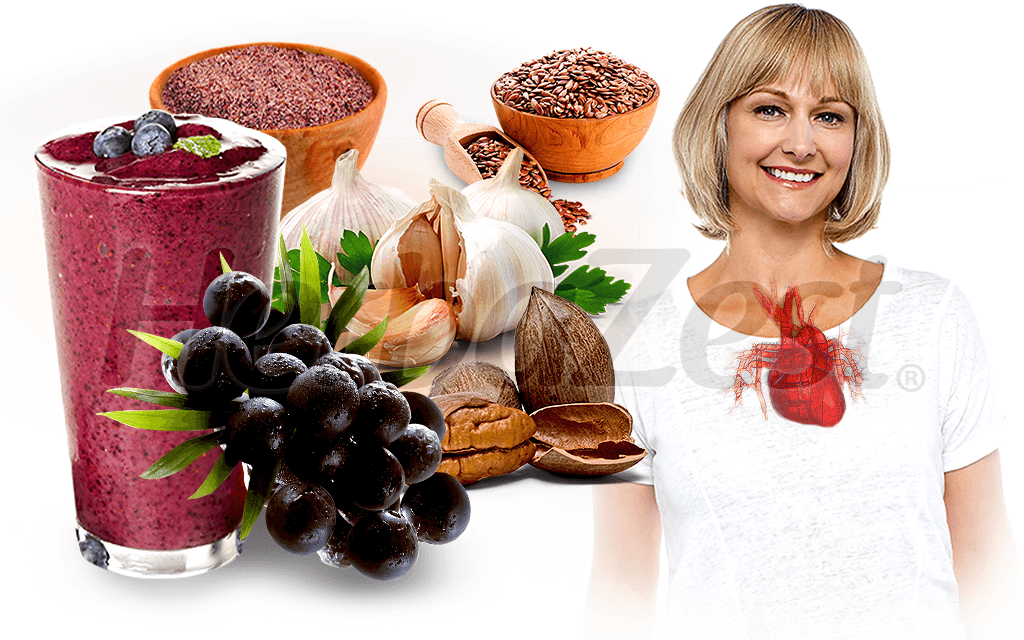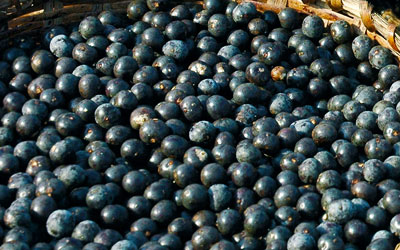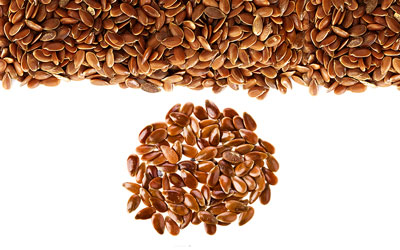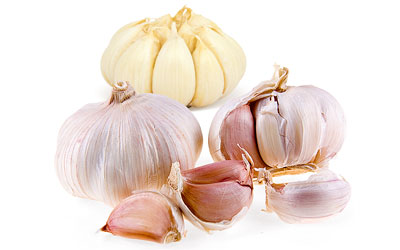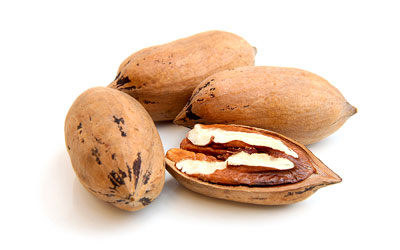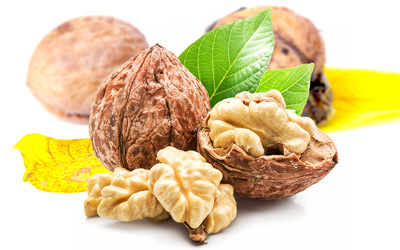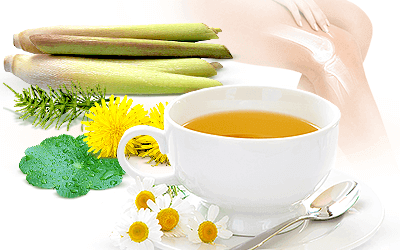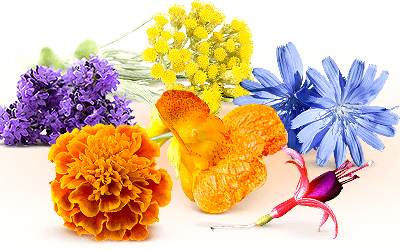Cholesterol runs through the blood, carried by molecules called lipoproteins, which come in two types: low-density lipoprotein (LDL) and high-density lipoprotein (HDL).
When LDL levels (popularly known as "bad cholesterol") are high, they start to build up in the arteries, eventually blocking them, causing heart disease and potentially stroke. An increasing number of Americans – currently 94 million - have high levels of LDL.1 The good news is that there is a simple way to treat and prevent high cholesterol, and that is changing the way you eat. The following herbs to reduce cholesterol can easily fit into your menu as part of a balanced diet, keeping your LDL levels under control and promoting cardiovascular health.
1. Nuts
The old myth that nuts increase bad cholesterol has been debunked by numerous scientific studies. Nuts are not only packed with minerals and vitamins, but they are actually rich in unsaturated fats that promote good cholesterol and a healthy cardiovascular system, also preventing weight gain and diabetes.
There's a wide variety of nuts that are easy to find and incorporate into your diet as snacks, such as walnuts, pecans, almonds, Brazil nuts, and macadamia nuts. Just be sure that you are eating them in their natural form as packaged presentations are usually high in sodium.
2. Acai
This exotic fruit, native to Central and South America, is a powerful antioxidant. It is charged with fiber, and its phytoesterols have been shown to be effective in reducing the absorption of cholesterol by the intestines, thus lowering the levels of LDL. It also reduces the presence of free radicals that have antihypertensive effects.
Acai can be consumed in juices, smoothies, and healthy desserts. Its active compounds can also be found in supplements.
3. Psyllium
Psyllium is a natural grain that contains 60 - 70% soluble fiber, eight times higher than oat bran. A study concluded that taking psyllium twice daily, along with a diet regimen, reduces LDL-cholesterol concentrations in men and women with primary hypercholesterolemia.
Psyllium is easy to incorporate into a healthy diet as a supplement. It can be mixed with water, smoothies, and shakes in powder form or taken in capsules. To make the most out of its effects, it is recommended to consume psyllium before or after every meal with plenty of liquids.
4. Flax
Flax, like psyllium, has a high soluble and insoluble fiber content. Its high unsaturated fatty acid content, most notably omega-3 essential oils, can also help to regulate cholesterol and promote overall wellness. An easy way to include flax as part of a healthy diet is by adding it to cereals, salads, and smoothies. Flax oil can also be found in capsules.
5. Garlic
Garlic is not only one of the most popular seasoning herbs around the world, but it also has the ability to improve the function of the liver, the organ responsible for controlling healthy cholesterol and triglyceride levels.
Garlic is rich in ajoene, a sulfuric compound responsible for thinning the blood and decreasing the presence of lipids. Both aromatic compounds in garlic, ajoene and allicin, contribute to dilating blood vessels and improving circulation. Garlic can be a healthy addition to a wide variety of dishes. It can also be taken raw or in capsules.
High LDL cholesterol levels don't need to be a curse - they can be controlled by merely changing your diet and regular exercise. Start by adding some of these herbs to your daily meals, and your next annual blood work will show the difference.
Sources
- Centers for Disease Control and Prevention, LDL and HDL: “Bad” and “Good” Cholesterol
- University of California, Meet Psyllium: A Fiber Product with Potential Cardioprotective Effects, 2005
- Encyclopedia of Herbal Medicine, pp. 23, 28, 49, 59, 286
- MedlinePlus Herbs and Supplements, Acai
Footnotes:
- Centers for Disease Control and Prevention. High Cholesterol Facts. Retrieved January 17, 2022, from: https://www.cdc.gov/cholesterol/facts.htm


